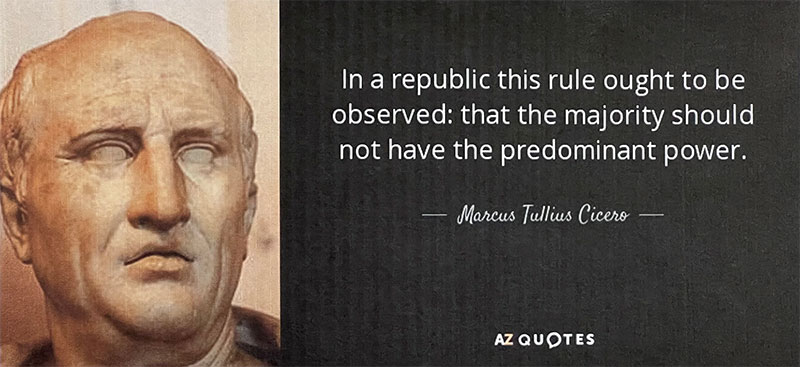- Memorial Day - Including the Remembrance the USS Mount Hood
- Evert’s Electables
- American Lawfare in New York
- Timmons's Condescending Remarks of a Children's Christian Ministry
- Democrat Party Holds America Captive
- Are SC State Legislators Spying on Its Citizens?
- Are the Dark Ages Returning?
- Evert’s Electables - June 25th, 2024 Republican Primary Runoff
- Evert’s Electables Republican Primary - June 11, 2024
- County Council Candidate’s Shady Practices and Dark Money Ties
- 'Better Greenville' Dark Money Supports Both Republicans and Liberal Democrats
- The Times Examiner Endorses Steve Shaw for Greenville County Council
- The Assassination of Donald Trump and The Revenge of MAGA
- John Winthrop’s Great Hope, Exhortation, and Warning
- Cuban Missile Crisis II
Local Columnists
Abiogenesis is Untestable
- By Press Release
If abiogenesis did occur on Earth, it can never be tested. It would be a one-of-a-kind event with no one present to observe and would not have occurred under conditions or on a scale that would leave a fossil record. Furthermore, even if all of the evidence proved beyond even an irrational doubt that abiogenesis did not occur on Earth, it could just be moved to Mars or some other planet. Once again, the ultimate rescue of abiogenesis would be that happened a long time ago in a galaxy far far away. All this shows that abiogenesis is an untestable hypothesis and therefore does not qualify as science.
- Hits: 248
Tucker Carlson Interview of Vladimir Putin - Part 12 of 12
- By Mike Scruggs

Ukraine Is Ruling Out Peace Talks and Cancelling Churches
In Part 11 of this series, Tucker Carlson and Vladimir Putin talked about the future of artificial intelligence (AI) and issues of concern in Russian-American relations. The Commentary included statistics on Ukraine’s alarming population decline and the Ukrainian Army’s heavy losses and severe shortage of manpower. Below, Tucker Carlson begins a discussion on peace negotiations.
Tucker Carlson: I wonder if that’s true with the war though also, I mean, I guess I want to ask one more question which is, and maybe you don’t want to say so for strategic reasons, but are you worried that what’s happening in Ukraine could lead to something much larger and much more horrible and how motivated are you just to call the US government and say, “let’s come to terms”?
- Hits: 329
America Is Under Siege
- By W.H. Lamb

WE ARE FACING OUR OWN “LINE IN THE DIRT” RIGHT NOW! WHAT WILL YOU DO?
We all know the facts and/or the legend of “The Siege of the Alamo” in San Antonio, Texas in late February and early March of 1836. A pitifully small number of Texans (or “Texians”) and American volunteers (about 180 men, plus a few women and children) determined to defend an old mission church called the “Alamo” that they had previously captured from its small Mexican garrison, fortified it, and eventually resisted a vastly superior enemy force—the Mexican Army of at least 1400 soldiers, under General Antonio Lopez de Santa Anna (1794-1876) thereby enshrining the term: “13 days of glory”, into our American lexicon. The Commander of the Alamo’s defenders, young Lt. Colonel William Travis (1809-1836), age 26, realizing that his situation by early March, 1836 was virtually hopeless, vowed to defend the Alamo to the end. Gathering the remaining defenders on Saturday, March 5, 1836, Travis, according to the “Legend of the Alamo”, gave a short talk to his ragged and battle-weary men.
- Hits: 402
Abiogenesis is Unrepeatable
- By Charles Creager, Jr.
Abiogenesis is ultimately unrepeatable even if it did occur, the best origin of life researchers could ever do is demonstrate that life could be produced under laboratory conditions. Not only would this require a lot of intelligence and deliberate manipulation of all the components involved, but as such it would not prove that such an event could actually happen in nature. The creation of life in a lab would only demonstrate that intelligence can produce life, it would not be repeating true abiogenesis. Also, the origin of life on Earth, whatever its source, is something that happened in the past and can't be repeated.
- Hits: 232
Tucker Carlson Interview of Vladimir Putin - Part 11 of 12
- By Mike Scruggs
AI Technology, Return of Detainees, Huge Ukrainian Population Losses

In part 10 of this series, Vladimir Putin was asked about the nature of Russian Christianity, how it is related to the Russian world view, Putin’s own faith, and his opinion of the rise and fall of great nations in the past. Tucker Carlson continued to probe into Putin’s political philosophies and views on international relations and current issues.
Tucker Carlson: So when does the AI empire start do you think?
Vladimir Putin: You are asking increasingly more complicated questions. To answer them, you need to be an expert in big numbers, big data and AI.
Mankind is currently facing many threats. Due to genetic research, it is now possible to create a superhuman, a specialized human being – a genetically engineered athlete, scientist, military man.
- Hits: 519
We’re Turning Into Europe, Aren’t We?
- By W.H. Lamb

Several years ago, my wife’s cousin in Washington State sent her a disturbing email. She added her comments: “I thank God that I’m the age I am, for I would hate to see what is coming to America—in fact, what may already be here.” I kept her email on file because it so bothered me that I didn’t want to consign it to cyber oblivion. I read it again recently, and I’ve decided that her concerns must be shared with concerned patriots who read this great journal of truth known as The Times Examiner.
The body of this email was an article by a Spanish writer, Sebastian Vilar Rodrigez, that was published by a Spanish newspaper back on Jan. 15, 2011. A brave Spaniard wrote these words thirteen years ago, and tragically events in Europe have degenerated since then toward societal desperation in many European nations who made the fatal mistake of welcoming hordes of Muslim “peaceful refugees” from war-torn Syria and other Muslim cesspools and dens of authoritarian extremism into their borders. I think you’ll agree that it isn’t much of a stretch of the imagination to extrapolate his words not only to all of Europe, but particularly to the now BORDERLESS United States.
- Hits: 391
Abiogenesis is Contrary to Actual Observation
- By Charles Creager, Jr.
The main reason that abiogenesis is contrary to observation is that life has only been observed to come from life. It has never been observed to come into existence from dead matter spontaneously. The simple fact is that the line between life and non-life spontaneously only goes one way, that is a living thing dies such that life becomes non-life. We do not see corpses spontaneously come back to life such that anyone seeing a dead person come back to life would rationally conclude that it was an act of God. Not only are there no examples of abiogenesis being observed, but everything we observe says it cannot happen.
- Hits: 245
- Tucker Carlson Interview of Vladimir Putin - Part 10 of 12
- “You Will Own Nothing, And You Will Love It”-- Says The Fascist, Klaus Schwab And His Globalist “World Economic Forum” - Part 2
- The Demonization of Vladimir Vladimirovich Putin
- Abiogenesis is Unobservable
- Tucker Carlson Interview of Vladimir Putin - Part 9
- “You Will Own Nothing, And You Will Love It”-- Says The Fascist, Klaus Schwab And His Globalist “World Economic Forum” - Part 1
- Did I Offend?
Subcategories













